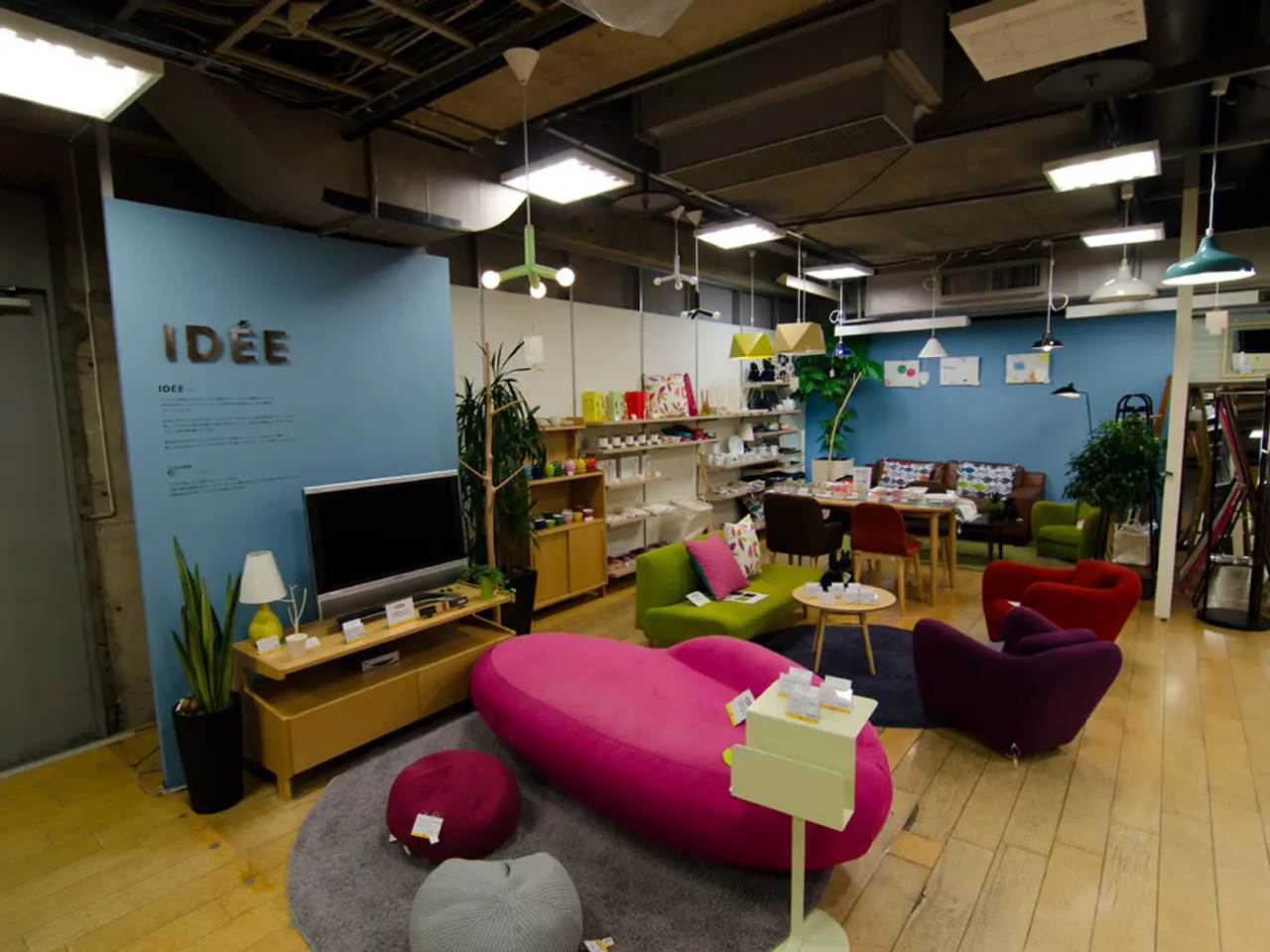Used goods purchases net Germans €11.1 billion savings in online shopping
In a significant shift towards sustainability and cost-consciousness, the second-hand online market in Germany has emerged as a mainstream and rapidly growing sector. This transformation is driven by consumers' growing preference for recommerce, as evidenced by the €9.9 billion recommerce revenue reached in 2024, marking a 7.2% growth rate, almost double the pace of general online product spending growth in Germany.
Amazon, a global leader in e-commerce, is at the forefront of this movement. Guided by its fundamental principles of focus on customers, passion for invention, commitment to operational excellence, and long-term thinking, Amazon is not only contributing to this growth but also promoting a more sustainable shopping experience.
The company's initiatives in Germany include Amazon Renewed, offering professionally refurbished products from qualified partners, all covered by the Amazon Renewed Guarantee. Amazon Warehouse Deals provides used and opened items (returned but unused) at discounted prices. These offerings are part of Amazon's Second Chance program, which supports the trend towards second-hand shopping.
Before reselling, items are thoroughly inspected to test their condition and improve online product descriptions, helping customers make informed decisions. This meticulous approach ensures that the quality of second-hand products matches Amazon's high standards, instilling confidence in customers.
The popularity of second-hand items in Germany extends across various categories. The most sought-after items include clothing, small household appliances, smartphones and tablets, and books. This aligns with consumer preferences for these product types in the circular economy model.
German consumers are motivated to buy used goods primarily for ecological reasons (71.5%), affordability (71.2%), and good value for money (66%). Over three-quarters (76.6 - 77.6%) of buyers intend to continue or increase their second-hand purchases, reflecting a solid, ongoing trend. Younger consumers, in particular, show a strong engagement, with 85% having purchased second-hand goods online, compared to 52% of those over 55 across Europe.
The growth is also linked to Germany's strong regulatory frameworks and awareness supporting the circular economy, as well as improved digital platforms that facilitate easy buying and selling between consumers and professional resellers. However, challenges remain, such as concerns around product condition, lack of guarantees, and competition from other e-commerce segments, which require attention for sustained expansion.
Looking ahead, the European second-hand online market, including Germany, is projected to expand by about US $2.33 billion in 2025, reflecting growing adoption. With Amazon's commitment to a more sustainable shopping experience and its ongoing efforts to provide a wide range of second-hand options, the future of the second-hand online market in Germany looks promising.
Sources: [1] Statista (2022) [2] Amazon (2022) [3] Bundesverband Recommerce (2022) [4] Deutsche Welle (2022) [5] Euromonitor International (2022)
When it comes to Amazon's strategic initiatives in Germany, they encompass more than just traditional e-commerce. Their offerings like Amazon Renewed and Amazon Warehouse Deals, part of their Second Chance program, cater to the burgeoning demand for home-and-garden, lifestyle, and shopping items in the second-hand market. This move aligns with the growing preferences of consumers, who are increasingly drawn to these categories due to economic, ecological, and value-for-money considerations.




